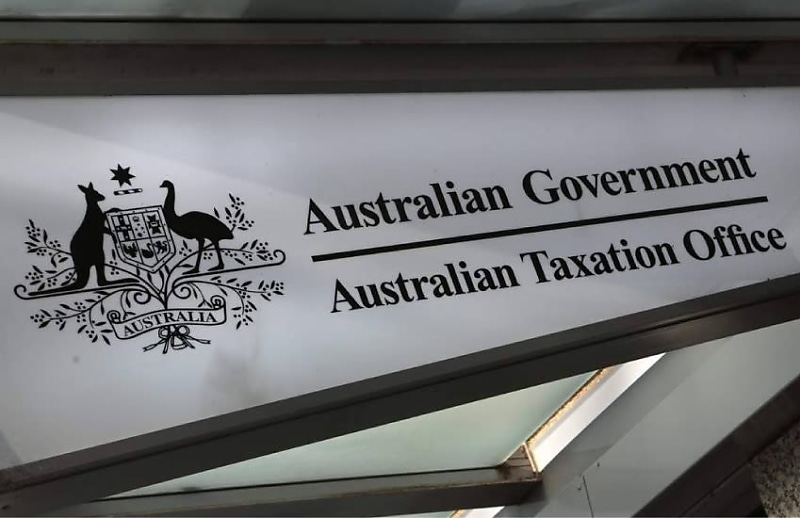Fraud case halted after ATO investigator found to have altered evidence
TaxThe Supreme Court of Queensland has halted a tax fraud case after finding an ATO investigator altered evidence and helped prepare false statements.

Last Friday (3 October), the Supreme Court of Queensland ordered a stay on the proceedings of an ongoing tax fraud case, after it found an ATO investigator deliberately altered evidence, helped prepare false statements, and became involved in an “abuse of process.”
In 2017, a medical researcher was accused of tax fraud by the ATO after she lodged a R&D tax application, which claimed she had spent $11,380,900 on raw materials and product development. The ATO considered this claim to be false and got its audit team involved.
The defendant, known as Julie Clarke in court documents, had wished to develop a drug treatment using the chemical (R)-3-hydroxybutyric acid (DBH) to manage conditions including cancer and obesity.
In December 2016, investment group, the Brisbane Angels (BA), invested $185,000 into Clarke’s company, Apagein, to conduct clinical trials using DBH as a weight loss product. Pharmaceutical regulatory expert Sue Akeroyd was engaged to advise regarding requirements for TGA approval.
Following the clinical trials, Akeroyd said that satisfying TGA requirements would be a ‘protracted and expensive process,’ which led the BA to withdraw from the project. A civil dispute commenced between BA and Clarke, in which BA wanted its money back, and Clarke wanted the return of intellectual property.
Clarke subsequently lodged the $11 million R&D application with the ATO, spurring the tax fraud investigation, according to court documents.
ATO criminal investigator Anthony Rains was nominated as the lead investigator for the case on 22 January 2018. That day, he participated in a meeting with the ATO’s audit team regarding Clarke’s alleged fraud.
On 23 January 2018, Clarke was subject to a ‘compulsory tax interview’ by three ATO audit officers. She was directed to answer questions and warned that if she didn’t, she would be committing an offence, the court found.
“These [compulsory interview] notices made it clear that the defendant could not claim privilege against self-incrimination. She was required to give evidence. If she refused to give information or attend and answer questions, she would be guilty of an offence,” court documents noted.
The court determined that the audit team had intended to share the interview with the ATO’s criminal investigations team, despite telling Clarke that it would remain confidential.
In doing this, the court found that the ATO officers had undermined Clarke’s right to silence in any criminal proceedings and unlawfully subjected her to a ‘hybrid’ audit and criminal interview.
“The audit team did not have the power to investigate a breach of the Commonwealth Criminal Code as agents of the crime team, or at all, and the crime team did not have the power to compel the defendant to answer questions put to her concerning the criminal allegation,” the judgment summary read.
“The court concludes that this undermined her fundamental right to silence.”
Throughout the investigation and subsequent proceedings, the court found that Rains had deliberately altered evidence, failed to properly document meetings, and provided “misleading” information in his statements to obtain search warrants.
In his prepared statements, Rains failed to disclose that the 22 January 2018 meeting had occurred. The court inferred that he had tried to cover up the meeting as it had been unlawful.
He was also allegedly involved in an “abuse of process” when he pushed for a state fraud charge with the Queensland Police Service (QPS), regarding alleged misappropriation of the BA investment. This was additional to the ATO’s tax fraud case.
In April 2018, Rains formed a view that Clarke had allegedly defrauded the BA of $185,000 and used the funds for personal expenses, court documents said. That July, he referred the case to the QPS without a complaint by the BA and failed to provide exculpatory evidence that indicated the funds had been used for legitimate business expenses, the court said.
“Rains ignored the fact that funds were spent on legitimate Apagein expenses,” court documents read.
“He also ignored the fact that clause 4.6 of the shareholders agreement entitled the defendant to reimburse herself for business expenses incurred and to pay herself remuneration.“
The court concluded that it was “doubtful” that there was ever a case to answer as alleged, with respect to the state fraud charge.
Rains also allegedly helped prepare a false statement from Akeroyd, which claimed she had not been paid, when she had been.
He also allegedly altered the expenses sheet Clarke had sent to the BA, omitting words that indicated the expenses had been approved by the board, and gave this altered document to the QPS to undermine Clarke’s defence.
The court said that this type of conduct was unacceptable from a government official and warned the justice system would be placed at a significant risk if the courts could not rely on the integrity of government institutions.
“The court should not tolerate this type of conduct by this ATO investigator or the ATO more broadly, or any government authority for that matter,” court documents read.
“The defendant must have been absolutely fearful of being unjustly convicted on the State fraud charge which would carry a sentence of several years in jail and she must have felt that no-one was listening to her.”
The courts ordered for the prosecution against Clarke to be stayed, finding that it was the only way to protect the integrity of the court’s process in such “exceptional” circumstances.
“Although it is a serious charge and such charges should ordinarily be tried as a matter of public interest, the court cannot be seen to tolerate the use of compulsory interviews for an ulterior unlawful purpose such as this,” court documents read.
The ATO acknowledged the ongoing proceedings when contacted for comment.
“The ATO acknowledges the judgment which relates to a prosecution conducted by the Office of the Director of Public Prosecutions (Cth) (CDPP),” an ATO spokesperson told Accountants Daily.
“The community should be assured the ATO takes all decisions of the Courts seriously and will consider the broader impact of the decision on staff and operations. However, it would be inappropriate to comment any further while an appeal period remains in place.”




